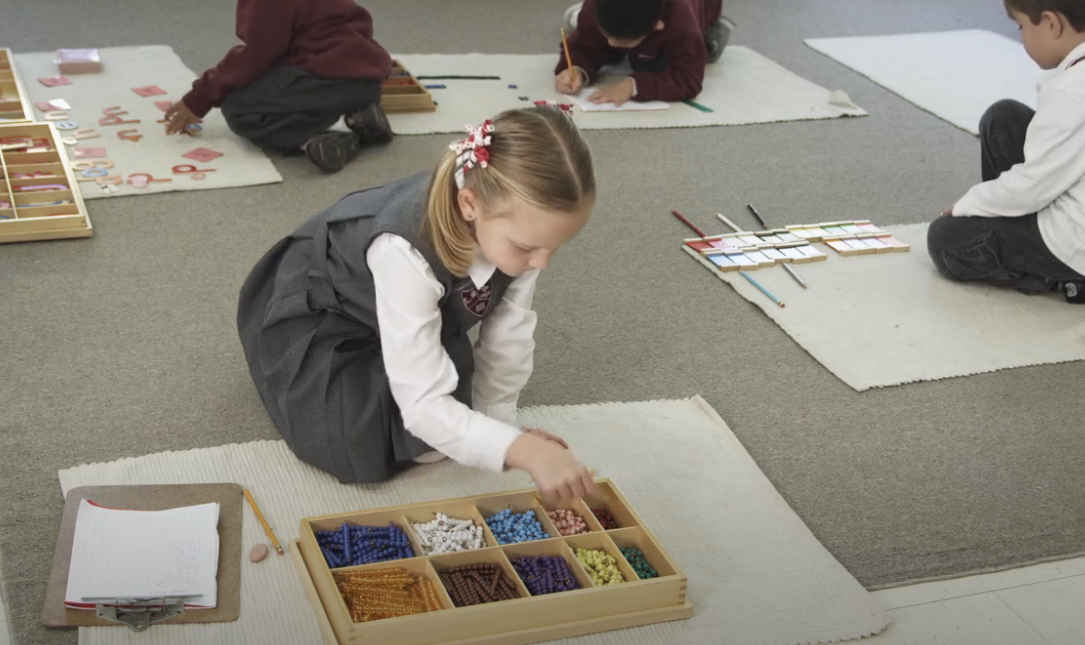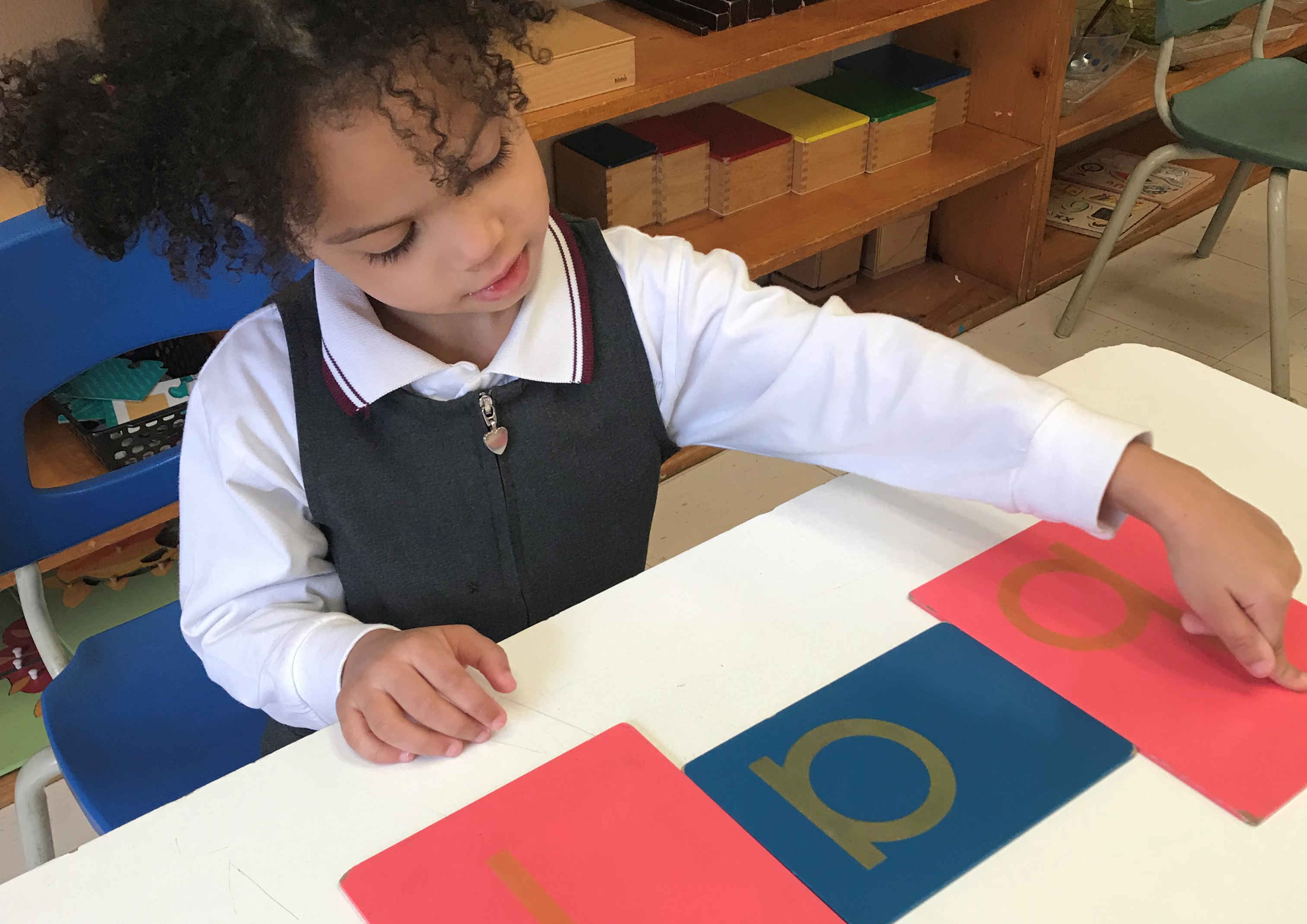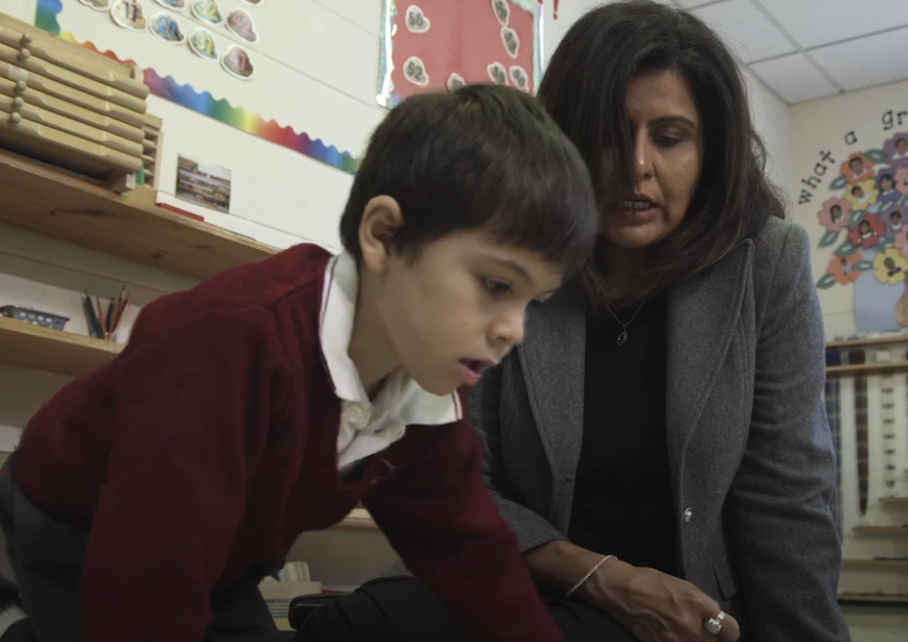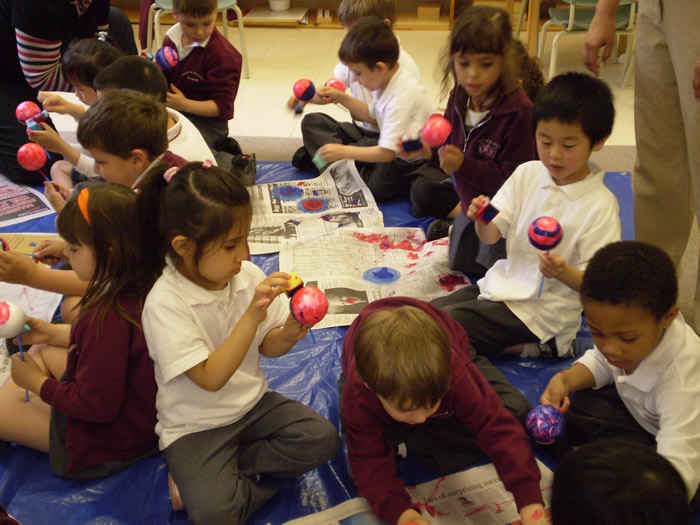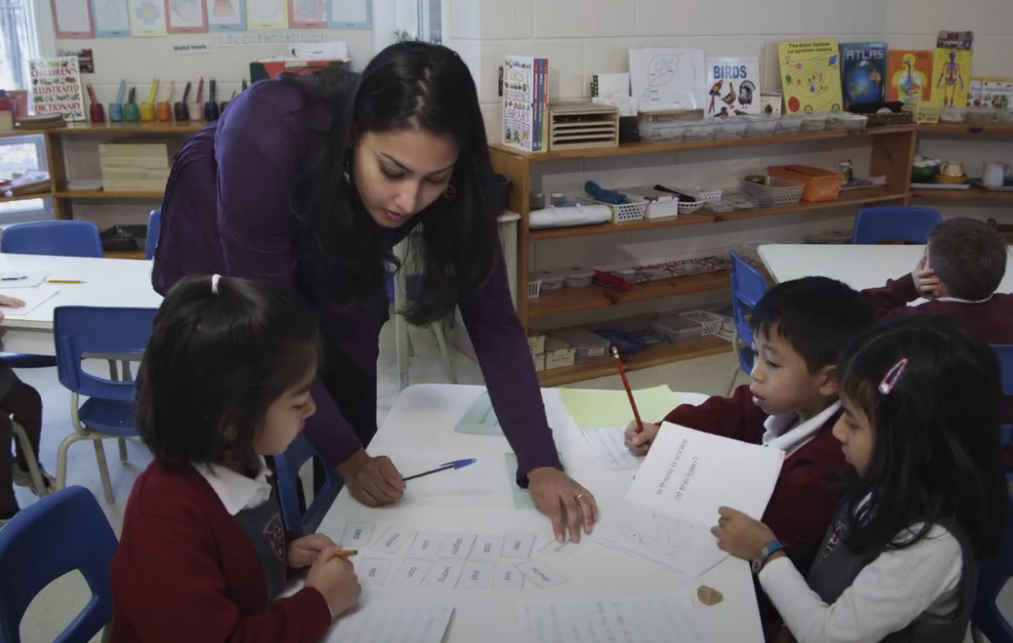By Sofia Coraines
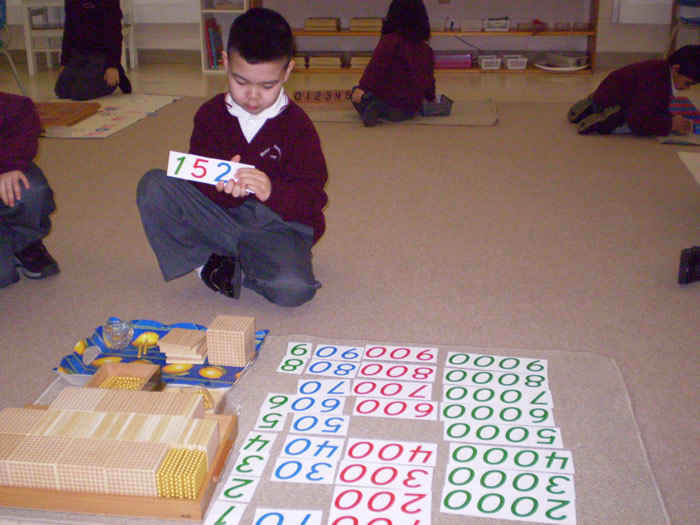
Imagine a classroom where children aren't confined to desks, but freely explore their environment, choosing activities that spark their curiosity. Picture a learning space where mistakes are embraced as opportunities for growth, and independence is nurtured from a young age. Welcome to the world of Montessori education 🌟.
In today's fast-paced, technology-driven world, parents and educators are increasingly seeking alternative approaches to nurture well-rounded, confident, and lifelong learners. The Montessori Method, developed over a century ago by Dr. Maria Montessori, offers a refreshing and proven approach to education that focuses on fostering independence and igniting a genuine love for learning.
As we delve into the core principles of the Montessori Method, we'll explore how this unique educational philosophy cultivates self-motivated learners, encourages hands-on exploration, and prepares children for success in the 21st century. From understanding the fundamental concepts to discovering key Montessori materials and activities, let's embark on a journey to uncover the transformative power of this innovative approach to education.
Understanding the Montessori Method
A. Core principles of Montessori education
The Montessori Method is founded on several key principles that guide its approach to education:
-
Respect for the child
-
Absorbent mind
-
Sensitive periods
-
Auto-education
These principles form the backbone of Montessori education, emphasizing the child's natural ability to learn and grow independently.
B. Child-centered learning approach
Montessori education places the child at the center of the learning process. This approach:
-
Encourages self-directed learning
-
Allows children to choose activities based on their interests
-
Promotes hands-on exploration and discovery
C. Prepared environment concept
The prepared environment is a crucial aspect of Montessori education:
| Element | Purpose |
|---|---|
| Child-sized furniture | Promotes independence and comfort |
| Organized materials | Encourages order and decision-making |
| Beauty and simplicity | Fosters concentration and appreciation |
D. Mixed-age classrooms
Montessori classrooms typically span a three-year age range, offering numerous benefits:
-
Peer learning and teaching
-
Development of leadership skills
-
Exposure to diverse abilities and perspectives
This multi-age approach creates a dynamic learning environment that supports individual growth and social development.
Now that we've explored the fundamental aspects of the Montessori Method, let's examine how it nurtures independence in children.
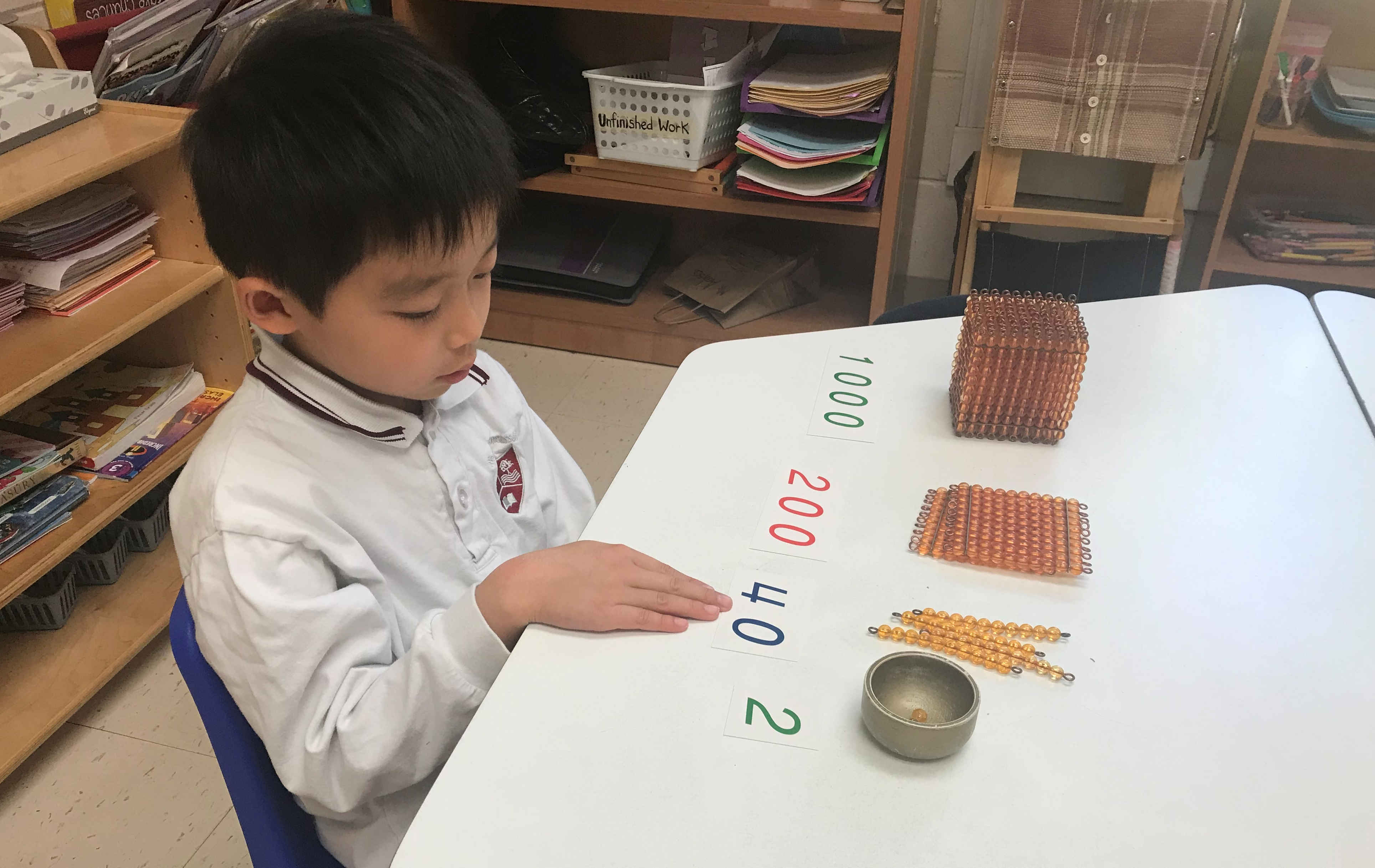
Nurturing Independence in Children
Now that we understand the basics of the Montessori Method, let's explore how it fosters independence in children. This approach empowers young learners to take control of their educational journey, developing crucial life skills along the way.
Self-directed Activities
In a Montessori classroom, children are encouraged to choose their own activities based on their interests and developmental needs. This freedom of choice cultivates intrinsic motivation and helps children develop a sense of ownership over their learning process.
Practical Life Skills
Montessori education places a strong emphasis on teaching practical life skills, which are essential for building independence. These skills include:
-
Dressing and undressing
-
Preparing simple meals
-
Cleaning and organizing their environment
-
Personal hygiene tasks
By mastering these skills, children gain confidence and self-reliance, reducing their dependence on adults for everyday tasks.
Freedom within Limits
While Montessori classrooms offer freedom, they also provide a structured environment with clear boundaries. This "freedom within limits" concept helps children learn self-discipline and respect for others while exploring their independence.
Developing Problem-solving Abilities
The Montessori Method encourages children to find solutions to challenges on their own. This approach fosters critical thinking and resilience, essential skills for independent learning and personal growth.
Encouraging Decision-making
Children in Montessori classrooms are regularly presented with opportunities to make decisions about their learning and activities. This practice helps develop:
| Skill | Benefit |
|---|---|
| Confidence | Children become more self-assured in their choices |
| Responsibility | They learn to take ownership of their decisions |
| Adaptability | Making choices helps children become more flexible thinkers |
By nurturing independence through these various aspects, the Montessori Method lays a strong foundation for lifelong learning and personal development. As we move forward, we'll explore how this approach cultivates a genuine love for learning in children.
Cultivating a Love for Learning
Now that we've explored how the Montessori method nurtures independence, let's delve into how it fosters a genuine love for learning in children.
Hands-on Learning Experiences
The Montessori approach emphasizes hands-on learning, allowing children to engage with their environment actively. This tactile approach makes learning more engaging and memorable, encouraging children to explore and discover on their own.
| Traditional Learning | Montessori Learning |
|---|---|
| Passive listening | Active exploration |
| Abstract concepts | Concrete experiences |
| Teacher-led | Child-centered |
Following the Child's Interests
One of the key principles of the Montessori method is following the child's natural interests. By allowing children to choose their activities, they develop a sense of ownership over their learning journey.
-
Personalized learning paths
-
Freedom to explore diverse subjects
-
Encouragement of curiosity and initiative
Intrinsic Motivation vs. External Rewards
The Montessori approach focuses on cultivating intrinsic motivation rather than relying on external rewards. This approach helps children develop a genuine love for learning that extends beyond the classroom.
Developing a Growth Mindset
Montessori education promotes a growth mindset, teaching children that their abilities can be developed through dedication and hard work. This mindset encourages:
-
Embracing challenges
-
Persisting in the face of setbacks
-
Viewing effort as a path to mastery
-
Learning from criticism and feedback
By fostering these attitudes, the Montessori method helps children develop a lifelong love for learning and personal growth. Next, we'll explore the key Montessori materials and activities that support this unique educational approach.
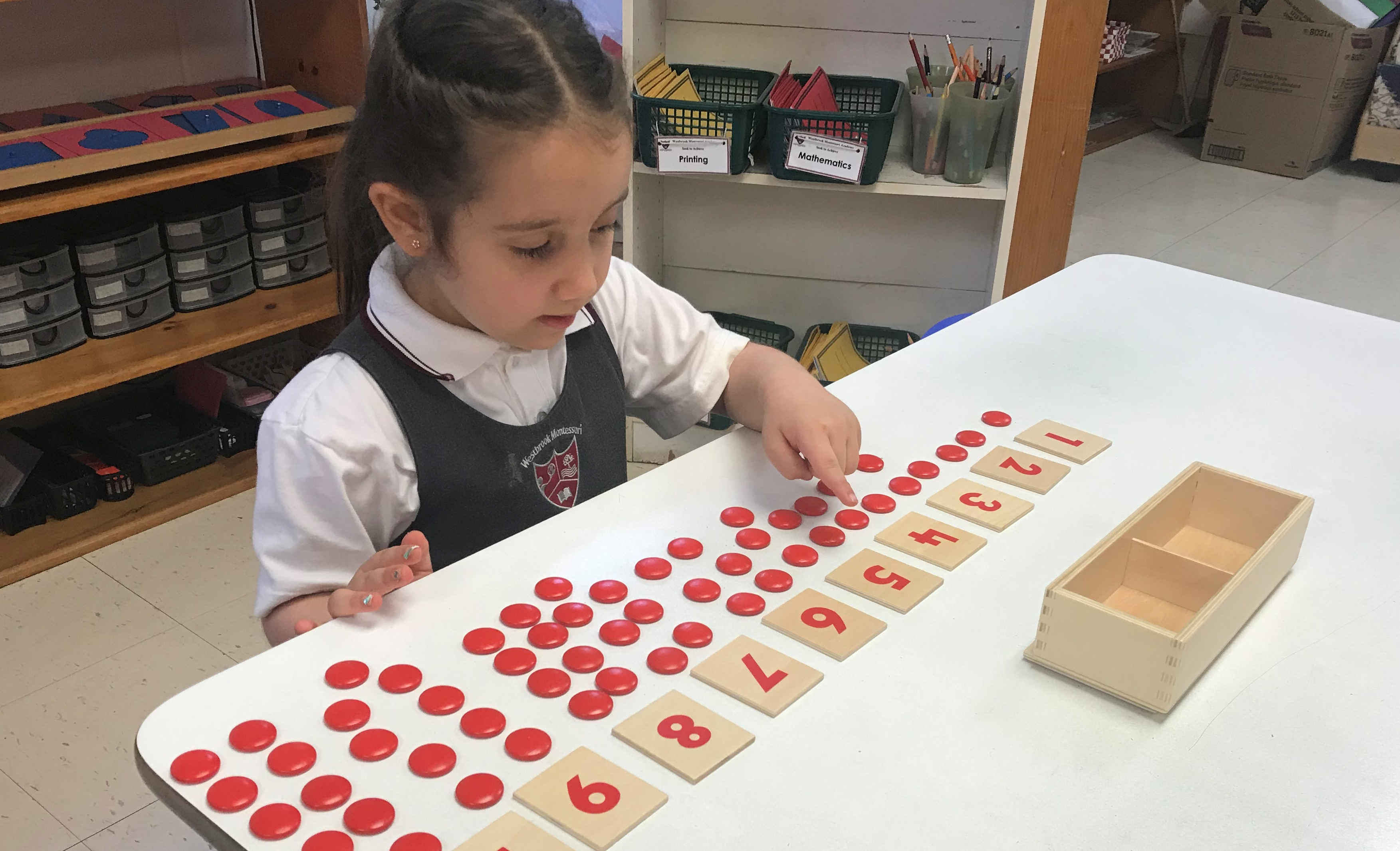
Key Montessori Materials and Activities
The Montessori method is renowned for its unique approach to learning, which heavily relies on carefully designed materials and activities. These tools are essential in fostering independence, concentration, and a love for learning in children. Let's explore some of the key Montessori materials and activities across different areas of development.
A. Sensorial Materials
Sensorial materials are fundamental to the Montessori approach, helping children refine their senses and develop cognitive skills. These materials are designed to isolate specific qualities such as color, weight, texture, and sound.
-
Pink Tower: A set of ten pink cubes of varying sizes, teaching visual discrimination and spatial relationships.
-
Color Tablets: Sets of colored tablets for color matching and grading exercises.
-
Sound Cylinders: Paired cylinders with different contents, encouraging auditory discrimination.
B. Language Development Tools
Montessori language materials are designed to support children's natural language acquisition process, from spoken language to reading and writing.
-
Sandpaper Letters: Tactile letters for learning phonetic sounds and letter formation.
-
Movable Alphabet: A set of cut-out letters for word building and early writing practice.
-
Object Boxes: Boxes containing miniature objects for vocabulary enrichment and classification.
C. Mathematical Concepts and Manipulatives
Montessori math materials provide concrete representations of abstract mathematical concepts, allowing children to internalize these ideas through hands-on exploration.
| Material | Purpose | Skills Developed |
|---|---|---|
| Number Rods | Introduce counting and numerical order | Counting, sequencing |
| Golden Beads | Represent place value | Decimal system, addition |
| Stamp Game | Practice mathematical operations | Addition, subtraction, multiplication |
D. Cultural and Science Activities
These materials and activities introduce children to geography, botany, zoology, and other cultural subjects, fostering a global perspective and scientific curiosity.
-
Puzzle Maps: Wooden maps of continents and countries for geography learning.
-
Botany Cabinet: Cards and puzzles for leaf shapes and plant classification.
-
Timeline of Life: Visual representation of Earth's history and evolution.
With these carefully curated materials and activities, Montessori classrooms provide a rich, hands-on learning environment. This approach not only supports academic skills but also nurtures children's natural curiosity and love for learning. As we move forward, we'll explore the crucial role of the Montessori teacher in guiding children through this unique educational journey.
The Role of the Montessori Teacher
In a Montessori classroom, the teacher plays a unique and crucial role that differs significantly from traditional educational settings. Let's explore the key aspects of a Montessori teacher's responsibilities:
Observer and Guide
The Montessori teacher is primarily an observer and guide, rather than a traditional instructor. Their role involves:
-
Carefully observing children's interactions with materials and peers
-
Identifying each child's interests, strengths, and areas for growth
-
Offering guidance and support when needed, without interfering with the child's natural learning process
Creating an Optimal Learning Environment
A key responsibility of the Montessori teacher is to prepare and maintain an environment conducive to learning:
-
Organizing the classroom into distinct areas for different subjects
-
Ensuring materials are accessible, clean, and in good condition
-
Rotating materials based on children's interests and developmental needs
| Aspect of Environment | Purpose |
|---|---|
| Prepared materials | Encourage self-directed learning |
| Organized spaces | Foster independence and order |
| Mixed-age groupings | Promote peer learning and mentorship |
Individualized Instruction Techniques
Montessori teachers employ various techniques to provide personalized learning experiences:
-
Presenting materials: Demonstrating how to use Montessori materials in one-on-one or small group sessions
-
Following the child: Adapting lessons and activities to each child's pace and interests
-
Encouraging problem-solving: Guiding children to find solutions independently rather than providing answers
-
Facilitating social interactions: Supporting children in developing communication and conflict resolution skills
By embodying these roles, Montessori teachers create an environment where children can develop independence, confidence, and a genuine love for learning. This approach sets the stage for the long-term benefits of Montessori education, which we'll explore in the next section.
Long-term Benefits of Montessori Education
Now that we've explored the various aspects of the Montessori method, let's delve into its long-term benefits for children. The Montessori approach not only shapes a child's early years but also has a lasting impact on their future.
Enhanced Social and Emotional Skills
Montessori education places a strong emphasis on developing social and emotional intelligence. Children learn to:
-
Collaborate with peers of different ages
-
Resolve conflicts peacefully
-
Express emotions in healthy ways
-
Develop empathy and respect for others
These skills contribute to better relationships and emotional well-being throughout life.
Improved Academic Performance
Research has shown that Montessori students often outperform their peers in traditional educational settings. Here's a comparison of academic outcomes:
| Skill Area | Montessori Students | Traditional Students |
|---|---|---|
| Reading | Advanced proficiency | Average proficiency |
| Math | Higher problem-solving skills | Standard problem-solving skills |
| Science | Enhanced curiosity and exploration | Typical curiosity levels |
| Writing | Strong creative expression | Average creative expression |
Lifelong Learning Habits
The Montessori method instills a love for learning that extends far beyond the classroom. Students develop:
-
Self-motivation
-
Critical thinking skills
-
Time management abilities
-
A growth mindset
These habits contribute to success in higher education and professional careers.
Adaptability in Diverse Environments
Montessori education prepares children to thrive in various settings. The multi-age classrooms and emphasis on independence foster:
-
Flexibility in thinking
-
Comfort with diverse perspectives
-
Leadership skills
-
Ability to adapt to new situations
As we look at these long-term benefits, it becomes clear that the Montessori method not only prepares children for academic success but also equips them with essential life skills for the future.
The Montessori Method offers a unique approach to education that empowers children to become independent, curious learners. By focusing on self-directed activities, hands-on learning, and a carefully prepared environment, this educational philosophy nurtures a child's natural desire to explore and understand the world around them. From the use of specially designed materials to the guidance of trained teachers, every aspect of the Montessori classroom is tailored to support a child's individual growth and development.
As we've seen, the benefits of a Montessori education extend far beyond the classroom. Children who experience this method often develop strong problem-solving skills, self-discipline, and a lifelong love of learning. By embracing the Montessori approach, parents and educators can help create a generation of confident, independent thinkers who are well-equipped to face the challenges of the future. Consider exploring Montessori principles and incorporating them into your child's life to foster their natural curiosity and help them reach their full potential.

